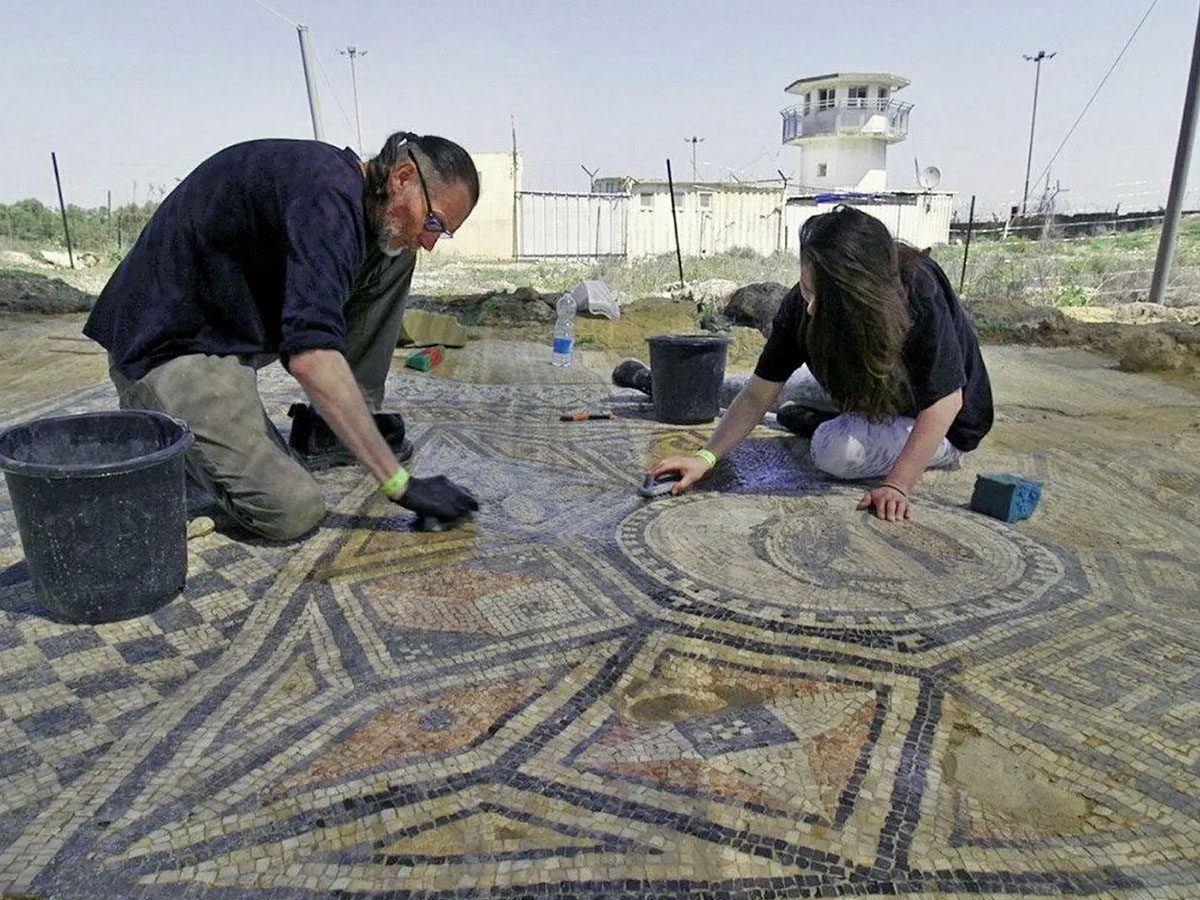
Israel has sent over the Megiddo Mosaic to the Museum of the Bible in Washington, DC to be on display for nine months. The Mosaic was found in one of the oldest-known Christian prayer halls in the area, after it was discovered in 2005 underneath a maximum-security prison that had been built over the site in the 1940s. This will be the first time the Mosaic will be displayed to the public, as its location in Israel has been closed for security reasons. Megiddo is also significant to Christian tradition as being considered the site of Armageddon, the Biblical place designated for the final battle between good and evil.
The Mosaic is significant for its references to Jesus, particularly recognizing Him as God. It contains an image of a fish, an early symbol of Christianity, and a Greek inscription stating, “To God Jesus Christ.” It also contains the name of several women who helped with ministry at the time and the name of the Roman soldier who commissioned its creation. It is one of the oldest references to Christ’s divinity, dating around the 3rd century AD. “The mosaic presents groundbreaking physical evidence of the practices and beliefs of early Christians, including the first archaeological instance of the phrase, ‘God Jesus Christ,’” stated Alegre Savariego, curator of the exhibition for the Israel Antiquities Authority (IAA).
The transfer of the Mosaic to the United States was a complicated one. Parts of the tiles had to be separated for the transport while not destroying the mosaic’s composition. The mosaic then had to be put back together on arrival. According to The Christian Post, around 50 to 75 staff workers worked together to put the pieces back together. The IAA has hoped to open up Megiddo to the public in the future by relocating the prison and creating an archaeological park. Such plans, however, are still in their infancy. In the meantime, the Mosaic has been available for viewing by the public since September 15 and will remain available for the next 9 months.


